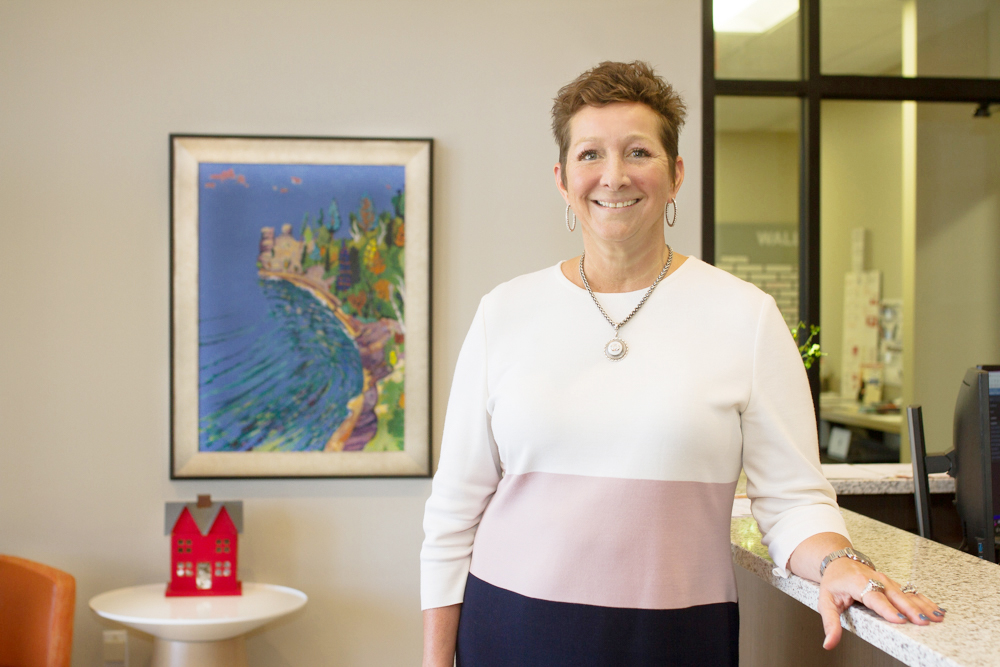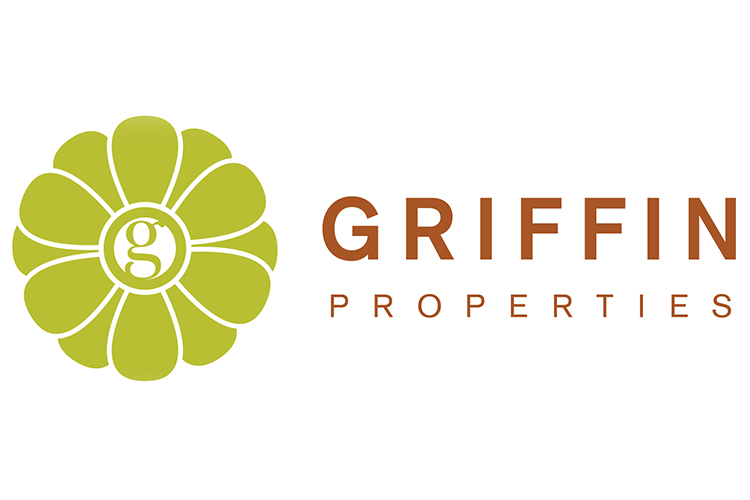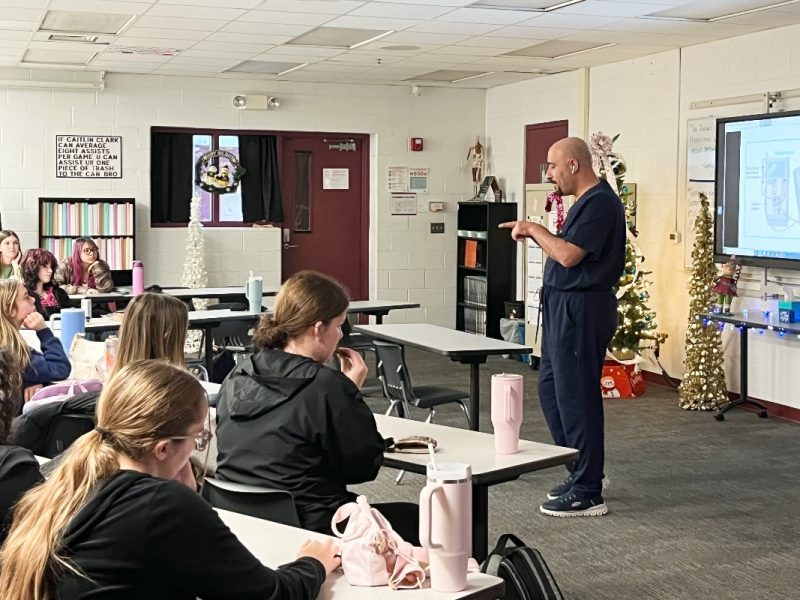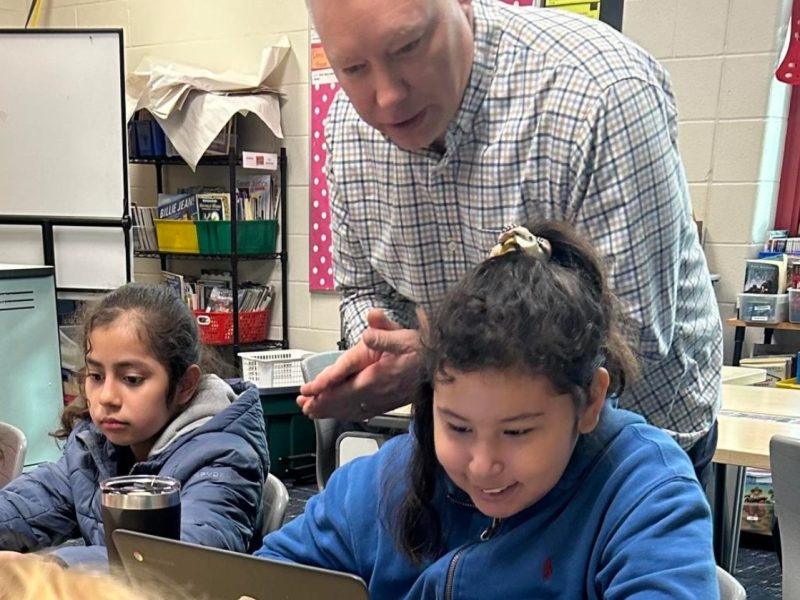G-sync: Catching up with Diane Griffin of Griffin Properties
Rapid Growth's Publisher Tommy Allen sat down with Griffin Properties' Diane Griffin to hear first-hand from one of our area's top realtors who entered the marketplace in 2005 right as the property values were about to begin a long slide.

It is difficult for many to recall a time in Grand Rapids when a house would sit on the market for sale as long as 90+ days in the early aughts. This is something of a rarity today.
But when Rapid Growth’s Publisher Tommy Allen sat down with Griffin Properties‘ founder Diane Griffin, he had a chance to hear first-hand from one of our area’s top realtors who entered the marketplace in 2005 right as the property values were about to begin a long slide leading up to (and years after) the crash.
And while it may not have been the best of times for many in local real estate, in this interview, edited down from their hour-long conversation, Griffin shares the insights and wisdom she has gleaned from over the years that still ring true … even for those working in or thinking of entering this profession during our boom times.
__________________________
Tommy Allen: I know you had a few rental properties as well as a series of other business ventures that included cafes at Grand Valley, as well as a lawn mowing service for cemeteries and a bartending gig at East Hills’ The Pickwick Bar, so how did you become involved with real estate?
Diane Griffin: It was my mom. When I went away to college, she found herself with time and got into real estate in Cincinnati, which is where I grew up. Then a couple of years later she moved to Naples, Florida and got into real estate there. And so I’d say about the time I was selling the coffee shops that she was saying, “You need to be in real estate, you need to be real estate.”
TA: And did you jump right away?
DG: Well, you know how when your mother says one thing and then you do the opposite as long as possible? (both laugh). And so I got into it in February 2005.
TA: I remember your debut because we were still quite a small town and yet you debuted with a bit of a splash with an artfully created logo that just stood out locally. I seem to recall it was in On The Town and other magazines I was reading at the time.
DG: It was and only in a few. My mom actually placed those ads for me.
TA: So wait, right out of the gate your mom is your media buyer?
DG: Yes. When I got into real estate I had just enough money to live for three months. I had Ruby as a toddler and Evelyn was an infant. So I went to the real estate classes at night and brought them with me. I didn’t have any family in town.
TA: I had no idea but I know lots of folks who share a similar story about taking career chances while juggling family.
DG: And it takes time you know from the time you get into real estate to the time you get your first check. If you can get one in three months, then that’s fast. So I really had to go all in.
TA: So what did your mom say to your new venture?
DG: She did let me know that she was not going to help me. And I was like, “That’s fine.” My dad said the same. But she did say that what she could do was buy me ads in local magazines.
TA: My parents gave me a used car and $500 so I understand the need to make your own way in this world. Tell me about those early years of real estate for you locally since things have really shifted dramatically since those years.
DG: The market was in the early stages of its decline locally. When we think about the horrible years of 2008, ’09, ’10, ’11 …. well, it all started in 2005.
TA: What was the mood then of our local homeowners trying to sell in those years?
DG: I think one of the things to keep in mind is that most people’s homes are their number one asset. So this is where they have a lot of their money but also a lot of blood, sweat, and tears have been invested, too.
TA: I saw your blood, sweat, and tears up close when I was renting one of your properties…
DG: Right. I sanded the floors myself. I painted everything. Replaced the toilet. Whatever had to be done. So when the reality of the market is saying houses aren’t worth what they used to be, well that takes a long time for individuals to wrap their heads around because in their mind it’s not a just a house. It’s their home. And because they’ve invested so much in it, it was unfathomable that it could be worthless.

TA: One thing I have always appreciated about knowing you is how matter of fact you can be but also how you have a heart in all that you do. I mean, you had a flower as the dominant feature of your logo that seemed to be everywhere in the city when it debuted.
DG: It is a daisy. Gerber daisies are my favorite flower.
TA: They have always symbolized an earthiness or purity in literature. I always liked your logo’s design simplicity and charm.
DG: When creating it I looked at some of the most successful logos out there, like the logo for Target. I sought something that was simple and easily recognizable when people see it. Also, it’s not just feminine, right? It has a little bit of that but it’s really very welcoming.
TA: I think it also showed reverence for the history this region owes to design. But no matter how beautiful your design is, you were entering the marketplace as a realtor during a very dark period in real estate history.
DG: When I started there were 3,000 realtors in the Greater Grand Rapids area. And then by 2012, there were only 1,500. Most did not make it through these years.
TA: What do you think was your secret to surviving during that period?
DG: I think for me it was a few things. First, I had owned several other businesses already. And, secondly, one of the beauties of Keller Williams specifically is that it teaches people how to own and run their own business under the umbrella or powered by Keller Williams.
TA: How did they do that?
DG: The company provides training, education, support, and technology so that you can focus on what your business is. A lot of agents have never thought of themselves as business owners. They think of themselves as people who help others buy and sell houses. That’s fine. But that doesn’t help you pay close attention to how a business runs.
TA: Other insights from those years?
DG: As a single mom with an infant and a toddler, I had to be really efficient with my time. So one of the things I said was if I was going to help people buy and sell houses, I would have to do it within a three-mile radius.
TA: Three miles seems like a good number, but why three?
DG: Within this three-mile radius I had lived for 15 years, I frequented many of the businesses, and had even worked at many of them. And since I knew already that when selling a home people say their greatest asset is the need to trust their realtor, I decided to focus specifically on people and within a location where I already had a lot of relationships. So my barrier of entry was less for me but I also had to hustle. I mean, hustling is something I had already done.
TA: And yet, when you look at the stats of others who left the industry during the crash years, you not only made it but you thrived.
DG: I think I came in with some knowledge that was different. That was good. I also had such drive to do so because I didn’t have a big cushy bank account to fall back on if it didn’t work. I had to make it work. And in order to make it work, I had to learn things quickly. I was able to insert some creativity as well.
TA: I know many see me first as an artist. So when I hear from more and more from friends in business about their desire to implement more creativity into their work decision processes, I take notice of a shift happening here in our region and creativity’s power to transform. How have you employed creativity within your business practice?
DG: The creativity piece for me came down to the relationships and, yeah, I guess partly it could be the art experience and having artists as friends. But I’d say my whole goal is to connect with people and better understand specifically where are we trying to get. And when you can ask people enough great questions and showcase that you genuinely care about where they are hoping to land, then it is not about selling a house. It’s helping them actually solve a problem.
TA: Another area of concern with most Type A personalities in my life is how do you manage a very busy career, raise a family, and get all those things we add to our to-do list off of it?
DG: I hired my first person after six months. So it happened pretty fast. I got busy quickly — which was great — but I didn’t feel like it was a good idea at first to hire an assistant because a lot of people in this industry they’ve been in it for 25 years and never had an assistant.
TA: So what changed your mind?
DG: At first reaction, I thought I was cocky and like, I can’t hire an assistant. I’ve only been doing this for six months. But my mom again came through with advice. She said, “The cost of a mistake is far more than the cost of an assistant. And if you keep up at this pace you’re going to have some really expensive mistakes. So get somebody to help you.” So I did.
TA: And then what happened?
DG: Then what I have learned through Keller Williams is when you think of hiring an assistant, we immediately go to what does it cost. But it is not about what an assistant costs a year, but what does it cost you for three months. Think of it in smaller chunks of time. And if you have the right people after this 90-day period, then with the extra time I freed up I was able to sell so many more houses and pay for that assistant for the full year. Hiring an assistant meant that I could hand off many of my domestic activities thus freeing up more time for our family.
TA: I find it fascinating that much of the advice you have shared on this topic is kind of where the market has taken many of us as we outsource everything from meals to firms like Blue Apron or our grocery shopping to places like Shipt. Let’s fast forward to the present: how have you grown since those early days?
DG: So by the end of my first year I had two assistants and then at the beginning of my next year I was able to hire my first buyer’s agent. Now there are 18 people on my Griffin Properties team with buyer agents, listing agents, an administrator, CEO, and a CFO. So we are a full-on corporation. This led to me buying the Keller Williams North brokerage (which has about 150 agents) as well as joining Keller Williams International with businesses now in Belize and the United Kingdom.
TA: A lot of folks want to get into real estate because they have an idea that it might be an easy choice but I dare say from our talk today, I think it should be approached just as any serious career choice because the risks we have seen from the past will dislodge many should we enter a downturn in the economy. Any parting advice?
DG: Many folks think real estate is just putting a sign in the yard, do a few showings, and secure a contract, and then they are done. But that is not what it is. It is very difficult. It is starting, owning, and running your own business. That is what it is.
TA: And given all that you have seen and experienced since 2005 including the crash…
DG: We could talk all day long about a bad market, but the reality was we were always out doing this to help our clients and to be really, really great with our community by delivering excellent customer service.
I like to build things. And my big why is to create enough opportunity so that everybody in my world can have whatever they want. And when you surround yourself with great people they nip at your heels. You know they want more and in order for them to have more, I need to look for more opportunity. So a lot of the reason I’ve been doing these other things as we grow is to create more opportunity for the people I’m in business with. And that’s been really rewarding.








